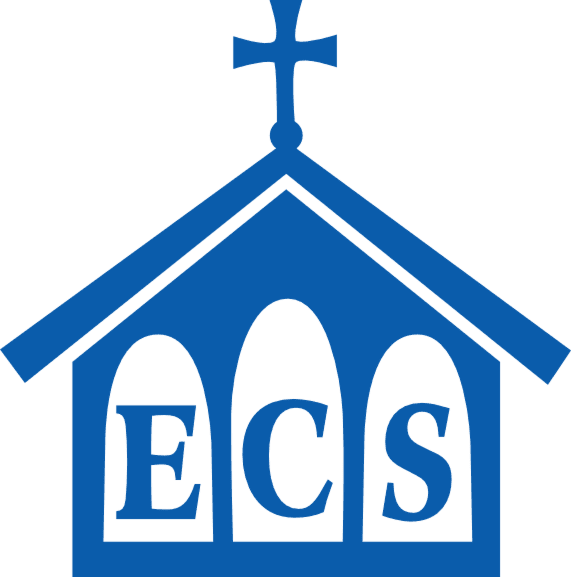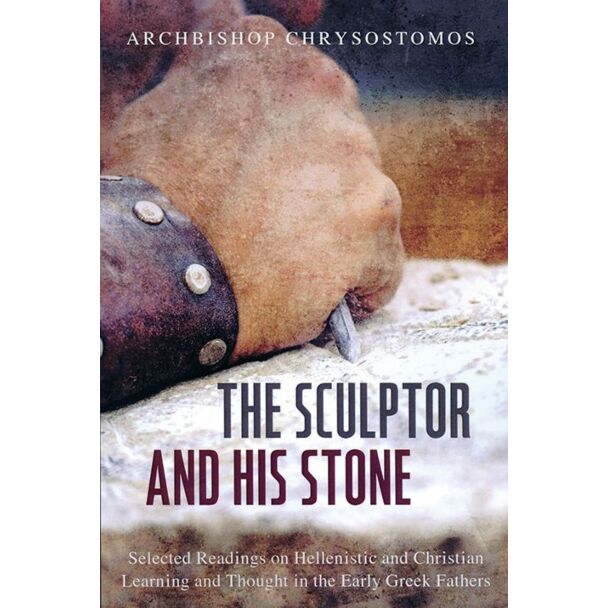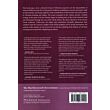The Sculptor and His Stone: Selected Readings on Hellenistic and Christian Learning and Thought in the Early Greek Fathers
The Most Reverend Chrysostomos, Former Archbishop and Metropolitan Emeritus of Etna
with Archimandrite Patapios, Bishop Auxentios, J. C. B. Petropoulos, Constantine Cavarnos, and the Reverend Gregory Telepneff
with Archimandrite Patapios, Bishop Auxentios, J. C. B. Petropoulos, Constantine Cavarnos, and the Reverend Gregory Telepneff
Publication Data: Eugene, OR: Pickwick Publications, 2016
Format: softcover
Number of Pages: xii + 161
Dimensions (l × w × h): 22.8 cm × 15.3 cm × 0.9 cm
ISBN 13: 978‒1‒4982‒3122‒0
The Most Reverend Chrysostomos, Former Archbishop and Metropolitan Emeritus of Etna
with Archimandrite Patapios, Bishop Auxentios, J. C. B. Petropoulos, Constantine Cavarnos, and the Reverend Gregory Telepneff
“The nexus between ancient Greek philosophy and the Christian religion has been a matter of study and debate since the earliest Christian centuries, when these two foundational forces in Western civilization first encountered one another. Surprisingly, scholars and historians in the West have parsed the influence of Hellenism on Christian apologetics and the synthesis of the two traditions by the Greek Fathers according to a paradigm that has changed little—allowing, of course, for various refinements and minor thematic variations—up to modern times. It has been assumed, according to this model, that the fledgling Christian religion simply borrowed much of its form and content from the Greek mystery cults and other religious traditions, forming its anthropology and cosmology around the thinking of the ancients—Platonism and Aristotelianism in particular—and adroitly blending Hellenic philosophy and Christian doctrine into an intelligible simulacrum, through the ‘Christ narrative,’ of Jewish messianic visions, drawing from old Testamental myths and epopees and from the language and imagery of the ancient world. [...]Quite another perspective on the relationship between Christianity and the wisdom of the ancients, and especially the classical Greek philosophical tradition, has held sway in the Christian East since apostolic times, and it is reflected in a certain limited but symbiotic convergence of Hellenistic philosophical ideas with the theological precepts of the Greek Fathers. According to this alternative model, the Greek philosophers, the Greek mystery cults, and other pre-Christian religions, though imperfect, of purely human and mundane provenance and thus spiritually barren and infecund, were nonetheless notional forerunners of Christian theology and religious practice.”
—“Introduction”
CONTENTS
Acknowledgements
Contributors
Introduction
CHAPTER 1 Man and His Universe in Hellenistic Thought and the Greek Fathers
—The Reverend Gregory Telepneff and the Most Reverend Chrysostomos
CHAPTER 2 Body, Soul, and Spirit in the Greek Ancients and in the Greek Fathers and Their Theological Legacy in Eastern Orthodox Christianity
—The Most Reverend Chrysostomos
CHAPTER 3 The Greek Fathers and Secular Knowledge
—The Most Reverend Chrysostomos and Archimandrite Patapios
CHAPTER 4 The Transformation of Hellenistic Philosophical Nomenclature in the Greek Patristic Tradition
—The Most Reverend Chrysostomos and Archimandrite Patapios
CHAPTER 5 The Notion of Rhetoric in the Eastern Orthodox Patristic Tradition
—Bishop Auxentios
CHAPTER 6 The Concept of Philosophy in the Hellenic Tradition
—Constantine Cavarnos
CHAPTER 7 Images of the Invisible Beauty: Plotinian Aesthetics and Byzantine Iconography
—Archimandrite Patapios
CHAPTER 8 In Defense of Piety: Respect for Words and Respect for “The Word”
—J. C. B. Petropoulos
CHAPTER 9 Free Will, Character, and Responsibility in Classical Greek Thought, the Greek Fathers, and Modern Existentialism
—Constantine Cavarnos
CHAPTER 10 The Ancient Greek Heritage
—Constantine Cavarnos
CHAPTER 11 The Hellenic Heritage in Byzantium
—Constantine Cavarnos
Format: softcover
Number of Pages: xii + 161
Dimensions (l × w × h): 22.8 cm × 15.3 cm × 0.9 cm
ISBN 13: 978‒1‒4982‒3122‒0
The Most Reverend Chrysostomos, Former Archbishop and Metropolitan Emeritus of Etna
with Archimandrite Patapios, Bishop Auxentios, J. C. B. Petropoulos, Constantine Cavarnos, and the Reverend Gregory Telepneff
“The nexus between ancient Greek philosophy and the Christian religion has been a matter of study and debate since the earliest Christian centuries, when these two foundational forces in Western civilization first encountered one another. Surprisingly, scholars and historians in the West have parsed the influence of Hellenism on Christian apologetics and the synthesis of the two traditions by the Greek Fathers according to a paradigm that has changed little—allowing, of course, for various refinements and minor thematic variations—up to modern times. It has been assumed, according to this model, that the fledgling Christian religion simply borrowed much of its form and content from the Greek mystery cults and other religious traditions, forming its anthropology and cosmology around the thinking of the ancients—Platonism and Aristotelianism in particular—and adroitly blending Hellenic philosophy and Christian doctrine into an intelligible simulacrum, through the ‘Christ narrative,’ of Jewish messianic visions, drawing from old Testamental myths and epopees and from the language and imagery of the ancient world. [...]Quite another perspective on the relationship between Christianity and the wisdom of the ancients, and especially the classical Greek philosophical tradition, has held sway in the Christian East since apostolic times, and it is reflected in a certain limited but symbiotic convergence of Hellenistic philosophical ideas with the theological precepts of the Greek Fathers. According to this alternative model, the Greek philosophers, the Greek mystery cults, and other pre-Christian religions, though imperfect, of purely human and mundane provenance and thus spiritually barren and infecund, were nonetheless notional forerunners of Christian theology and religious practice.”
—“Introduction”
CONTENTS
Acknowledgements
Contributors
Introduction
CHAPTER 1 Man and His Universe in Hellenistic Thought and the Greek Fathers
—The Reverend Gregory Telepneff and the Most Reverend Chrysostomos
CHAPTER 2 Body, Soul, and Spirit in the Greek Ancients and in the Greek Fathers and Their Theological Legacy in Eastern Orthodox Christianity
—The Most Reverend Chrysostomos
CHAPTER 3 The Greek Fathers and Secular Knowledge
—The Most Reverend Chrysostomos and Archimandrite Patapios
CHAPTER 4 The Transformation of Hellenistic Philosophical Nomenclature in the Greek Patristic Tradition
—The Most Reverend Chrysostomos and Archimandrite Patapios
CHAPTER 5 The Notion of Rhetoric in the Eastern Orthodox Patristic Tradition
—Bishop Auxentios
CHAPTER 6 The Concept of Philosophy in the Hellenic Tradition
—Constantine Cavarnos
CHAPTER 7 Images of the Invisible Beauty: Plotinian Aesthetics and Byzantine Iconography
—Archimandrite Patapios
CHAPTER 8 In Defense of Piety: Respect for Words and Respect for “The Word”
—J. C. B. Petropoulos
CHAPTER 9 Free Will, Character, and Responsibility in Classical Greek Thought, the Greek Fathers, and Modern Existentialism
—Constantine Cavarnos
CHAPTER 10 The Ancient Greek Heritage
—Constantine Cavarnos
CHAPTER 11 The Hellenic Heritage in Byzantium
—Constantine Cavarnos
Write Your Own Review






